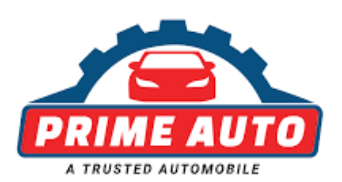Find out about your rights before having your vehicle repaired. Also, know what you can do in the event of a dispute with a repair shop.
The law
Repair costs
Invoice Requirements
Warranty on repairs
Repair shop signs
Conflicts with the repair shop
If you don’t pay
The law
When you have a vehicle repaired, your rights as a consumer are protected under the Consumer Protection Act . This applies to any location that offers motor vehicle repair services, including:
motor vehicle dealerships or used car parks with repair facilities
neighborhood garages
auto repair shops
muffler repair shops
Repair costs
Before a repair shop can charge you, they must have given you a written quote, unless you didn’t want one and instead agreed on the maximum amount you’re willing to pay for the repair.
The final cost invoiced cannot exceed the quoted amount by more than 10% or, if you did not want a quote, it cannot exceed the agreed maximum amount.
Written quote
If you get a written quote, it should include the following information:
the make, model, identification number ( VIN ) and vehicle registration number;
the exact description of the repairs to be carried out
the parts to be installed and a statement as to whether the parts are new, used or reconditioned
whether or not new parts are from the original equipment manufacturer
price of each piece
total labor costs and method of calculation ( e.g. hourly rate or flat rate, or a combination of both)
the total amount that will be invoiced (the final cost must not exceed this amount by more than 10%)
the dates of establishment and expiry of the estimate
the date on which the repairs and work will be completed
Quotation costs
the cost of diagnostic time
the cost of reassembling the vehicle
the cost of parts that will be damaged during diagnosis or reassembly and need to be replaced
A repair shop cannot charge an estimate if you allow them to do the work before reassembling the vehicle. However, if you delay allowing them to carry out the repairs, the workshop may reassemble your vehicle in the meantime and charge you a fee.
If you authorize the repair shop to begin repairs, but do not do so in writing, they must put your authorization in writing.
Never sign a blank work order. The repair shop can then make any repairs they deem necessary for your vehicle and charge you for them, even if you don’t agree.
Invoice Requirements
The final invoice for repairs must include:
the name, address and contact details of the repair shop
the make, model, identification number ( VIN ) and vehicle registration number;
the number of kilometers on the odometer when the consumer brings the vehicle to the workshop and when the vehicle is returned to him;
a list of the parts installed and a statement as to whether they are new, used or reconditioned parts
whether or not new parts are from the original equipment manufacturer
price of each piece
supplies billed to the consumer (which are not included in normal operating costs)
the terms of the warranty offered by the repair shop for all parts and labor
the total amount that is invoiced (cannot exceed the quoted amount by more than 10%)
Warranty on repairs
The Consumer Protection Act provides a 90-day or 5,000 km warranty, whichever comes first, on parts and labor. Repair shops can, however, offer a higher warranty if they wish.
If your vehicle breaks down during the warranty period or if it is no longer safe because the repair is defective, take it to the repair shop or, if this is not reasonable, to the workshop. the closest.
Extended Warranties, Service Plans and Manufacturer’s Warranties
If you have a complaint regarding the sale or performance of an extended warranty or service plan, contact the Motor Vehicle Industry Council of Ontario ( MOVAC ).
If you have a complaint about the performance of a manufacturer’s warranty, contact the Motor Vehicle Arbitration Program ( CAMVAP )
Repair shop signs
The Consumer Protection Act also requires repair shops to post a sign clearly indicating:
that the repair shop must provide a written estimate, unless you choose to allow a maximum amount for the repair
that the changed parts will be given to you if you want them (subject to a few exceptions)
whether labor costs are calculated on an hourly rate, a flat rate, or a combination of the two
whether the repair shop charges an estimate fee and whether the mechanics receive commissions
Conflicts with the repair shop
If you believe a repair shop has failed to comply with the law, notify the company in question of your complaint by mail, email or telephone. It is always best to contact the company in writing so that you have a record of the communication.
If you tell the company by phone, be sure to write down the date and details of the conversation. Keep a copy for your records.
If this letter produces no result:
have another shop perform a written assessment of your vehicle’s problems, which indicates that repairs were not carried out as they should have been or that the parts used were of poor quality.
You can then send the original workshop a copy of this written evaluation to request a correction of the repair invoice.
If he still does not respond to your complaint, you can:
file a complaint with the Ministry of Government and Consumer Services, or
take the matter to court.
Under the law, if a repair shop makes false statements about repairs or the quality or specifications of parts , you have rights under the Consumer Protection Act .
If you don’t pay
The repairer can keep your vehicle if you do not pay for the repairs. If they return your vehicle to you and you then refuse to pay, the repair shop may register a lien against your vehicle. He could then have your vehicle seized and, if he gives you notice, sell or give it away.








Leave a Reply
You must be logged in to post a comment.